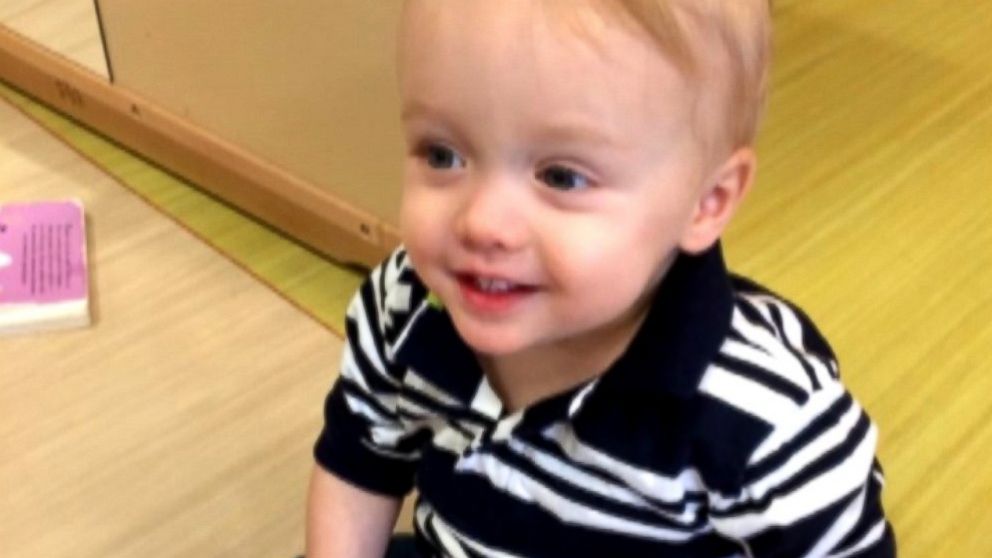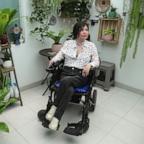Georgia Dad Accused of Murder in Son's Hot Car Death Gets Emotional During Closing Arguments
Justin Ross Harris is accused of murdering his son Cooper in June 2014.
— -- The prosecution and defense delivered their closing arguments today in the murder trial of a Georgia man accused of leaving his 22-month-old son in his hot car. Justin Ross Harris' fate is now in the hands of the jury.
Harris is accused of murdering his son Cooper on a hot summer day on June 18, 2014, after Cooper spent about seven hours in a car seat in Harris' locked SUV in the Atlanta area.
"It was the only manner in which he could escape his son and in some sick, selfish, perverted ... manner, also became an advocate," prosecutor Chuck Boring said.
The defense concluded its closing argument by playing a short video of Harris and Cooper from January 2014 showing them sitting on a bed happily playing guitar. Harris appeared emotional after that video was played.
Authorities say Cooper was in the car when Harris drove to work at a Home Depot corporate office the morning of June 18, 2014. When Harris went inside, Cooper was left in the vehicle, according to authorities, who also said that Harris returned to his car during lunch to put something away, then went back to work. Court documents state that Harris allegedly researched child deaths in hot cars before Cooper's death.
Charges in the indictment also refer to sexually explicit online exchanges from March 2014 through the day of Cooper's death that, prosecutors say, Harris had with an underage girl. Prosecutors argued that Harris wanted to be free of his family responsibilities and was having multiple online affairs, including with the girl.
Harris faces eight charges: malice murder, two counts of felony murder, cruelty to children in the first degree, cruelty to children in the second degree, criminal attempt to commit a felony and two counts of dissemination of harmful material to minors. He has pleaded not guilty to all the charges.
During closing arguments today at Harris' trial in Brunswick, Georgia, about 300 miles from Atlanta, the prosecutor said there is no doubt Cooper died due to the heat, no doubt Harris lived a double life and no doubt that Harris left Cooper in his car, while defense attorney Maddox Kilgore said Cooper's death was an accident.

Boring said it is clear Harris knew about the dangers of children being left in hot cars, noting that Harris had emails about it and had watched a video about hot car deaths five days before Cooper died.
Boring referred to a doctor, an expert called by the defense, who testified during the trial and admitted that the facts in this case "completely differ from other cases of a failure of memory system. ... This case doesn't fit."
"And he told us if this child was visible ... in that car, that is not a failure of memory system," Boring said. "In this case, this child was visible three different times. ... Cooper would have been visible to anyone inside that car."
Boring also discussed what he speculated was Harris' state of mind in the weeks before Cooper's death.
Weeks before Cooper's death, Boring said one of the girls Harris had been messaging asked him "does your conscience ever kick in?" and Boring said Harris said "Nope."
"We know for a fact that he showed that lack of conscience on June 18, 2014. He showed exactly who he is," Boring said.
"We know he stated that in the weeks leading up to this, his breaking point was pretty low," Boring said. "He professed love for several of these young girls ... leading all these different lives. The one that he was most emotionally attached to was slipping through his fingers."
"We know this woman he had professed love to, who he told that if it wasn't for Cooper that he would leave [his wife], was gradually cutting him off," Boring said, noting that Harris messaged her but she didn't respond. "And on the morning of June 18, a couple of hours before he killed his son, he tried one last time to message this girl he was obviously in love with, with no response."
"Unlike a lot of cases, in this case we know what was in the defendant's mind that morning," Boring said. "He told this person he couldn't live his other life the way he wanted. ... He wanted to go out all the time. ... And most importantly, 10 minutes before he killed Cooper, he actually said that he needed an escape."
Then the defense gave its closing argument and Kilgore argued that Cooper's death was an accident. He said Harris failed to take Cooper to daycare and he left Cooper in the car.
"Ross [Harris] explained from that very day he is responsible -- he is absolutely responsible, only him, nobody else," Kilgore said. "But responsible is not the same thing as criminal."
"Ross treasured Cooper and had no reason ... to kill him," Kilgore said.
"Ross forgot. He didn't choose to forget," Kilgore said. "You don't anticipate that you're gonna forget. That's not how it works. And when he got out of the car with Cooper in the back ... he'd already forgotten him. You can't anticipate or expect that Cooper was going to be injured ... when he got out, he forgot that he was in there."
"He doesn't take action because he's clueless," Kilgore said. "There is no evidence of any kind of hatred or bad feelings ... that Ross expressed that toward his son. Every single witness that we heard from in the trial that had any knowledge of the relationship between Ross and Cooper, everyone testified that he was a loving proud father."
Positive testimony on Harris' relationship with Cooper included testimony from family, coworkers, daycare workers, Harris' friends and even Harris' ex-wife and her best friend, Kilgore said.
"Ross ruined that woman's [his ex's] life. He humiliated her in front of the world. He took her son away," Kilgore said. "You really think she's gonna come in here, and her best friend's gonna come in here, and say anything about how much Ross loved this little boy, if they didn't know that this was an accident?"
"Everybody that knew him said he loved that little boy," Kilgore said.
Kilgore said even the women Harris talked to on the internet agreed, noting that one woman said Harris said only positive things about Cooper and that another woman said Cooper was Harris' life.
If Harris was living a double life, as Kilgore said the prosecution called it, there appeared to be a constant in both lives -- he "loved his little boy."
"The state wants to suggest that Ross wanted to escape from Cooper so bad that he would destroy the treasure of his life," Kilgore said. "To do what they're suggesting ... there's gotta be some pretty serious hatred."
No witness has indicated anything like that, Kilgore said, as Harris in court wiped his eyes with a tissue. Kilgore asked the court what Harris would gain from killing Cooper.
"He's already doing whatever he wants to do," Kilgore said. "For there to be motivation, there's got to be some sort of payoff or reward. What does he gain?"
The state's theory, Kilgore said, is that Harris wanted to live a life free of his wife and child. Kilgore admitted that Harris was unfaithful and that Harris "complained about sex in his marriage. ... But he enjoyed the family life part of it."
"He enjoyed being a dad," Kilgore said, noting that Harris was planning a family cruise that included Cooper and was looking for a house in a good school district at the time of Cooper's death.




